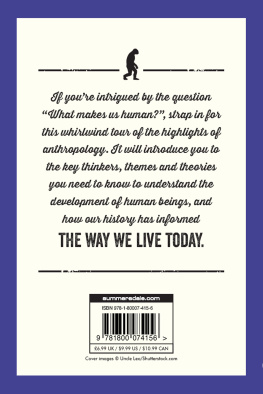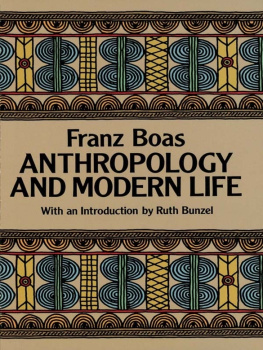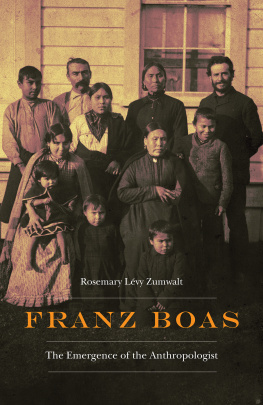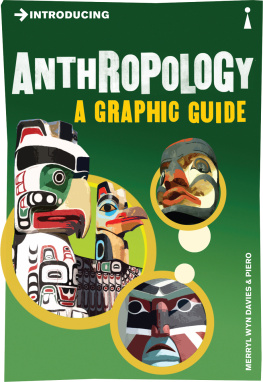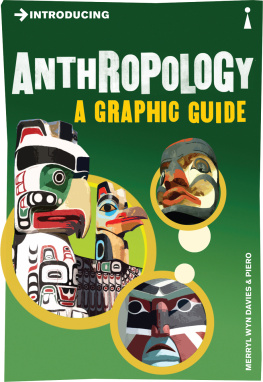Routledge Revivals
Anthropology and Modern Life
Anthropology and Modern Life, first published in 1929, addresses itself to an immensely broad field with clarity, introducing anthropology as a unique and coherent discipline, and demonstrating its importance in the understanding of socio-cultural change throughout history.
The author covers varied and diverse areas of study: ethnicity, including a lengthy discussion of the concepts of race and nationality; criminology, and the importance of hereditary and environmental factors in producing criminals; education, and the associated issues of gender, class, and what would now be called brainwashing; and also the comparison between modern and primitive cultures, taking note of the development of socio-political institutions such as marriage and property.
First published in 1929
by George Allen & Unwin Ltd
This edition first published in 2014 by Routledge
2 Park Square, Milton Park, Abingdon, Oxon, OX14 4RN
and by Routledge
711 Third Avenue, New York, NY 10017
Routledge is an imprint of the Taylor & Francis Group, an informa business
1929 Franz Boas
All rights reserved. No part of this book may be reprinted or reproduced or utilised in any form or by any electronic, mechanical, or other means, now known or hereafter invented, including photocopying and recording, or in any information storage or retrieval system, without permission in writing from the publishers.
Publishers Note
The publisher has gone to great lengths to ensure the quality of this reprint but points out that some imperfections in the original copies may be apparent.
Disclaimer
The publisher has made every effort to trace copyright holders and welcomes correspondence from those they have been unable to contact.
ISBN 13: 978-0-415-74625-0 (hbk)
ISBN 13: 978-1-315-79706-9 (ebk)
ANTHROPOLOGY
AND MODERN LIFE
By
FRANZ BOAS, Ph.D.
LONDON
GEORGE ALLEN & UNWIN LTD
MUSEUM STREET
All Rights Reserved
FIRST PUBLISHED IN GREAT BRITAIN IN 1929
ROWORTH AND CO., PRINTERS, 104-7 FETTER LANE, E.C.4
Contents
.... Anthropology treats of man as a member of a social groupPure and applied anthropology.
... significance of the term RaceOverlapping of racial typesSubjective existence of typesRacial heredity and family linesInbred and heterogeneous typesFunctional differences between individuals of the same bodily formEnvironmental influences upon bodily formRaces considered from an evolutionary viewpointRelation between the size of the brain and intelligenceMan as a domesticated formPhysiological and mental differences between racesDifficulty of distinguishing between hereditary and environmental conditionsSignificance of intelligence testsTests of Amjeriqan NegroesRelative importance of cultural experience and racial descentRacial descent disregarded by ethnologists.
.. Race consciousnessOpen and closed societiesRace a type of closed societyIntermingling of racesConditions under which race antipathies break down.
.. Confusion between the terms Race and NationalityMixed descent of European nationsLanguage as basis of national groupings Culture and political organization as basis of nationalityFictitious groupings based on distant relation of speechIncrease in size of povlitical unitsEarly development of tribal unitsDecrease in feeling of difference between tribal groupsThe function of nationalism.
.. Effects of selectionEffect of environment and heredityGeneral degeneracySelection for development of specific qualitiesSocial effects of eugenic legislationElimination of the unfitDangers of eugenic procedure.
.. Criminals as a classCriminals as defectivesSocial conditions and crimeRelative importance of hereditary and environmental factors.
.. Acceleration of cultural developmentPeriodicity of the rate of changeAutomatic habitsRelation between material inventions and automatic habitsThe relation between language and thoughtActions are more stable than their interpretationsStability of patterns of thoughtNegative effect of automatismIntoleranceInd epend ence.
.. Phenomena of growth and developmentInfluence of heredityDevelopment of functionsRetardation and accelerationComparison of sexesApplication of generalized observations to the establishment of educational standardsRacial characteristicsCases in which standards are applicablePrediction of individual developmentGeneralized standards are not applicable to individualsCultural effects of educationEffect of education upon mental freedomConflicts in educational aimsEffect of education upon crises in the life of the individualThe cultural outlook of classesCultural outlook of educated classCultural outlook of the masses.
.. Applicability of anghropologyValuation of different cultural aimsObjective study must be based on different culturesAnthropology an historic sciencePrediction of development of culture impossiblePrimitive cultures as historic growthsGeneral social lawsProgress in inventions and knowledgeStability of moral ideasProgress in ethical behaviorProgress in social organizationLeadershipPosition of womanMarriagePropertyIs the direction of cultural development predetermined?Culture not superorganicGeographic and economic determinism.
ANTHROPOLOGY is often considered a collection of curious facts, telling about the peculiar appearance of exotic people and describing their strange customs and beliefs. It is looked at as an entertaining diversion, apparently without any bearing upon the conduct of life of civilized communities.
This opinion is mistaken. More than that, I hope to demonstrate that a clear understanding of the principles of anthropology illuminates the social processes of our own times and may show us, if we are ready to listen to its teachings, what to do and what to avoid.
To prove my thesis I must explain briefly what anthropologists are trying to do.
It might appear that the domain of anthropol-ogy, of the science of man, is preoccupied by a whole array of sciences. The anthropologist who studies bodily form is confronted by the anatomist who has spent centuries in researches on the gross form and minute structure of the human body. The physiologist and the psychologist devote themselves to inquiries into the functioning of body and mind. Is there, then, any justification for the anthropologist to claim that he can add to our fund of knowledge?
There is a difference between the work of the anthropologist and that of the anatomist, physiologist, and psychologist. They deal primarily with the typical form and function of the human body and mind. Minor differences such as appear in any series of individuals are either disregarded or considered as peculiarities without particular significance for the type, although sometimes suggestive of its rise from lower forms. The interest centers always in the individual as a type, and in the significance of his appearance and functions from a morphological, physiological or psychological point of view.
To the anthropologist, on the contrary, the individual appears important only as a member of a racial or a social group. The distribution and range of differences between individuals, and the characteristics as determined by the group to which each individual belongs are the phenomena to be investigated. The distribution of anatomical features, of physiological functions and of mental reactions are the subject matter of anthropological studies.
It might be said that anthropology is not a single science, for the anthropologist presupposes a knowledge of individual anatomy, physiology and psychology, and applies this knowledge to groups. Every one of these sciences may be and is being studied from an anthropological point of view.



